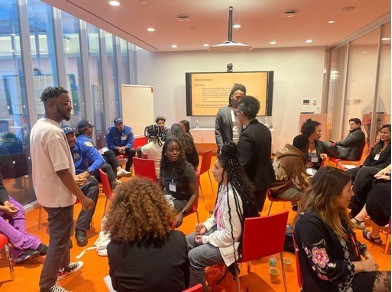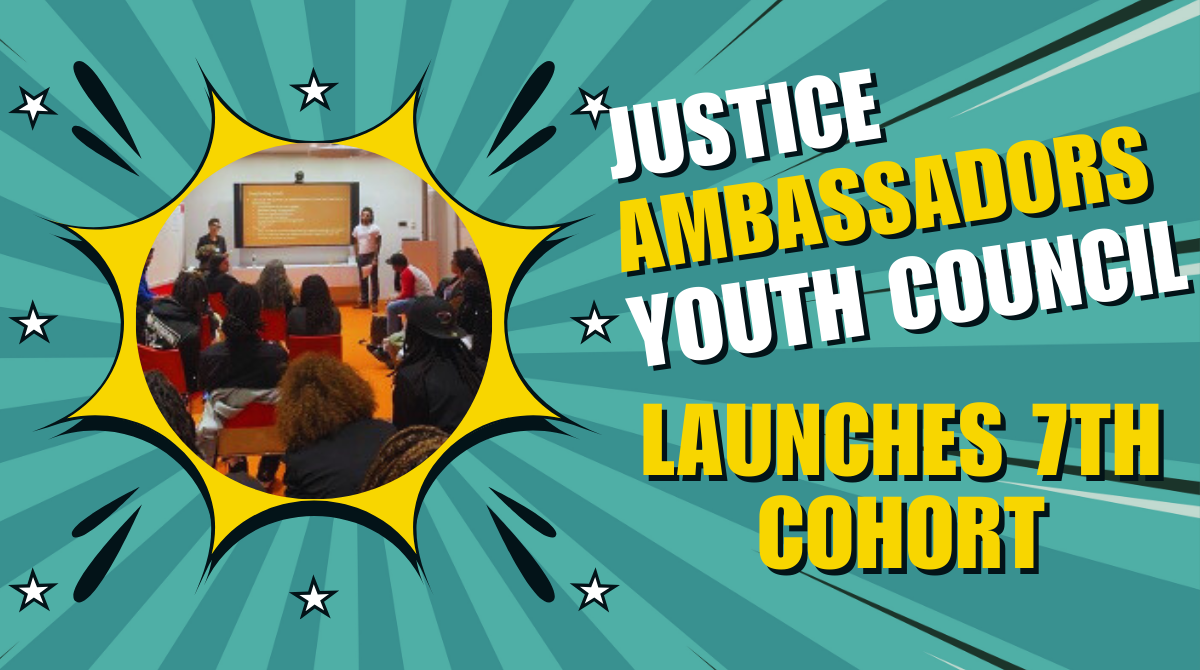The Justice Ambassadors Youth Council officially began its programming for its 7th cohort on October 1st
The Justice Ambassadors Youth Council officially began its programming for its 7th cohort on October 1st, co-facilitated by Jason Bostic, Program Coordinator at Justice Ambassadors, and Pauline Ross, Special Deputy Inspector General for Operations. Held at The Forum at Columbia University, the first session brought together youth participants and key institutional stakeholders, marking the beginning of an exciting new journey.
The stakeholders represent various city and state government agencies, community organizations, and institutions such as the Department of Youth and Community Development, the Office of the Governor, and the New York City Council. Their involvement ensures that the cohort’s efforts are supported by a broad network of decision-makers and social justice leaders while still being driven by the expertise of young Justice Ambassadors most informed on the issues impacting their communities.

The session encouraged collaboration and community building over a shared meal, a seemingly simple aspect of programming but one that the Center for Justice has found to play an integral part in fostering connections and dialogue. In community, the entire cohort revisited the "living" cohort rules centered on respect and equity, continuing to develop these principles and building on the youths’ earlier pre-programming efforts.
The cohort was also able to cover the first module of the Justice Ambassador curriculum, "Personal & Social Identity." The group was introduced to Urie Bronfenbrenner's ecological model of human development, or as it is colloquialized in programming, the “circle of life.” This model helps individuals understand how external factors shape their identity, and how their identity influences the world around them. The Justice Ambassadors then developed and reflected on their own "circle of life," examining the forces that have shaped their identities and their broader impact on communities.

In addition to the start of programming, the young Ambassadors participated in a site visit on Thursday to the Thurgood Marshall United States Courthouse, where they engaged with representatives from the U.S. Attorney’s Office. The visit included discussions with a federal appellate court judge and a U.S. Attorney prosecutor. The youth posed insightful questions about topics such as reentry, supervised release, and more. Harnessing material covered on the Tuesday session, they inquired about how the criminal-legal system might work to "bridge the gap" between seeing someone as just a case and recognizing them as a whole person shaped by their life circumstances and experiences. They also were able to engage with a licensed social worker and deputy chief of the federal probation office, learning about the distinctions between federal supervised release and parole, expanding their understanding of the “backends” of legal processes that affect their communities.
The enthusiasm and engagement of the cohort were evident during both Tuesday’s session and Thursday’s site visit, setting a strong foundation for the endeavor ahead – advancing social justice through policy.

